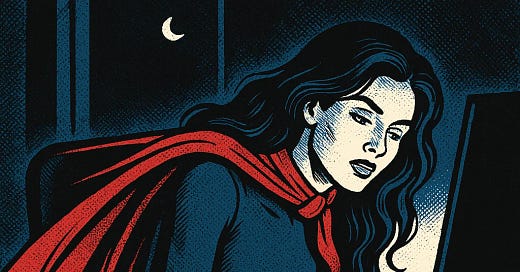A few years ago, I found myself triple-checking a slide deck.
It wasn’t mine.
I wasn’t presenting it.
Someone else had already reviewed it.
But I checked it anyway—just in case.
The day before, I rewrote a teammate’s email.
The night before that, I stayed late cleaning up a project I didn’t own.
I told myself I was being helpful. I didn’t want to “burden” anyone.
But the truth?
I was playing the hero.
Why Being the Hero Feels So Good (At First)
It feels powerful to save the day.
To be the one who catches what others miss.
To be the fix-it-all, the one they “can always count on.”
It builds your reputation.
It makes you feel needed.
It makes you feel indispensable.
And that high? It’s addictive.
But Here’s the Catch: The Hero Always Burns Out
The more you jump in, the more they hold back.
The more you fix, the less they own.
And suddenly, you’re not just the hero—you’re the bottleneck.
You resent them for not stepping up.
They assume you’ll always save the day.
And everyone’s growth—yours included—stalls.
That’s when I realized:
They weren’t under-performing.
I was over-performing.
Not out of necessity—but out of habit. Out of identity.
I had built a version of leadership centered on being the hero.
And it was quietly wrecking everything.
How to Break the Hero Habit
If you’re always the one stepping in, it’s time to step back.
Here’s how I started rewiring my leadership:
🔹 Let “good enough” actually be enough.
Not everything needs polishing. Ask: Is this critical, or just my preference?
🔹 Don’t save—ask.
Instead of fixing, ask: “What’s your plan?” Give your team space to lead.
🔹 Coach, don’t correct.
Resist the urge to tweak. Say: “What do you think needs to happen next?”
🔹 Let them feel the weight.
Give others ownership—and let them carry it. That’s how confidence is built.
Leadership Isn’t About Being the Hero
It’s about building others up so you don’t have to save the day.
Being the hero might feel good in the moment.
But long term? It traps you in a cycle of overwork and underdevelopment.
You don’t become a great leader by doing everything.
You become a great leader by making space—so others rise.
Yes, it’s hard.
Yes, it’ll feel uncomfortable.
But trust me: letting go isn't a weakness.
It’s leadership.









I can so relate to this Kelly - was doing the same many years ago, but gladly managed to kick the habit to strengthen me and my team in allowing them to take the ownership, hold them more accountable and support/coach if help was needed.